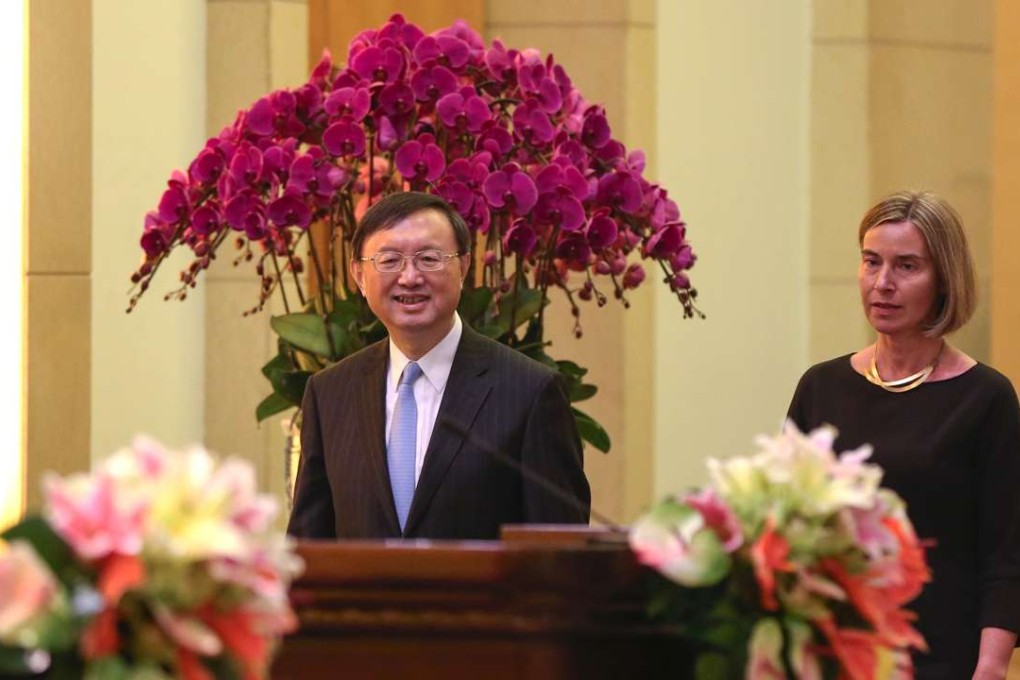Comment: why it’s in China’s interests to compromise with the EU on trade
Europe’s markets are vital to the mainland as it attempts to forge infrastructure projects towards the continent, writes Philippe Le Corre

Less than a fortnight after President Donald Trump met his Chinese counterpart Xi Jinping in Florida for their first summit, a more low-key affair has taken place in Beijing this week, the 7th European Union-China Strategic Dialogue. It was held ahead of the “Belt and Road Initiative” summit that will take place in the Chinese capital next month.
During the chaotic first two months of the Trump administration, some Chinese analysts were quick to see the emergence of a Sino-European axis that would somewhat offer a counterweight to the competitive US-China relationship. For example, China and the EU are each other’s largest trading partners and share an interest in the implementation of the 2015 Paris agreement on climate that is now being questioned by the Trump administration.
Before the Florida summit, the new US president had made incendiary comments against China, branded the country a “currency manipulator” and said it was “responsible for the destruction of millions of US jobs”. A telephone conversation with the president of Taiwan, right after Trump’s election victory, also raised eyebrows in China, and even in some European capitals.
Now, it is far from certain that China and the EU would want to advocate jointly an “alternative vision of the world” that would oppose Donald Trump’s more isolationist views. Since the Florida summit, the US administration has in fact taken a different stance on several issues, such as Syria and North Korea, much more in line with previous presidents and perhaps closer to what America’s transatlantic partners expect.
As for Europe, it is facing general elections in the top three countries: France, the UK and Germany, as well as tough Brexit negotiations between London and the 27 remaining EU member states following last year’s referendum.